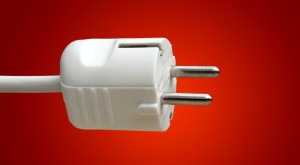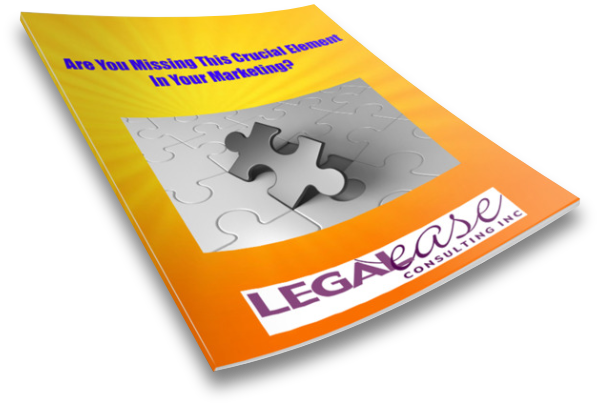 We all need to unplug at times – but it’s easier said than done
We all need to unplug at times – but it’s easier said than done
There are different schools of thought about whether being ‘connected’ all of the time is the best way to serve clients, and I’ve discussed this topic before when discussing use of the telephone, giving out cell phone numbers to clients, etc. But this week it hit home more than ever how disconnecting helps clients not just in the immediate moment (giving full attention to one client or one task instead of being distracted by the phone, incoming emails, etc.), but over the long term.
Many lawyers today wear their workaholism as a badge of honor of sorts, talking about the number of hours they work, the weekend nights they’re spending toiling away at their desks instead of spending time with their families, jumping out of their seats at a restaurant to answer a ringing cell phone, one-upping each other with the length of time that has passed since they’ve taken a vacation. As a practicing lawyer, it’s tough not to give in to that mindset. When I was with my old firm, I was working constantly, hadn’t taken a vacation in years, and was getting more and more frustrated because the harder I worked the more it seemed there was to do.
That’s really the key – there will always be more work to do. The phone will always ring. The email will keep coming in. The trade journals and bar association publications will keep being delivered. At some point, we just have to say, “STOP.” A burned out lawyer is no good to any client. Inadequate nutrition, poor concentration, bad sleep habits, lack of motivation, low energy, and that feeling of having too many people to give to and not giving enough to each person are all detrimental to your clients.
Rates of alcoholism, depression and divorce are higher among lawyers than the population at large. It should be clear that none of those three are especially helpful to clients. The morale of lawyers has declined, and many lawyers say they wouldn’t become lawyers if they had to do it again, and they wouldn’t advise others to become lawyers. Since we take our cues from those around us, it’s likely that our clients are suffering from this low morale as well. Low morale, energy and motivation certainly aren’t leading to creative thinking or problem-solving, either.
Many lawyers think that being ‘on’ 24-7 gives them more control in an out of control world. Competition is increasing at a steady rate. Lots of tasks that could only have been performed by lawyers in the past are being commoditized and ‘sold’ on the internet and elsewhere by non-lawyers. Price competition is fierce. Lawyers are at the mercy of judges and clients. Civility is decreasing and the environment is often adversarial. Lawyers have begun to accept sacrificing their entire lives to their work – for what? Is it worth it? In actuality, in the attempt to control everything, lawyers often sacrifice everything and still control nothing.
I’d like to think that my work – both online, in this blog and in the ‘real world’ will help lawyers prevent what I call “lawyer meltdown.” By finding more efficient ways of practicing, learning how to work better with employees, associates, staff, vendors and colleagues, tapping into vision and the reasons for becoming a lawyer in the first place, changing billing practices, focusing on the ‘right’ tasks and the ‘right’ clients, we can turn the legal profession into a happier, more relaxed place to be. Lawyers have a bad reputation, in part because of the pressures we place on ourselves and the resulting image that necessarily projects. Lawyers are leaving the profession in droves. It’s time to change all of that and bring life back into the law, keep good lawyers in the profession and serve clients exceptionally well at the same time.
Lawyer Assistance Programs have been established to help lawyers deal with problems such as alcoholism and depression, but it would be so much better if we could find ways to practice law that reduced or even prevented these problems in the first place. It may take a culture shift for the profession as a whole to get there, but each individual lawyer intent on avoiding lawyer meltdown is a step in the right direction.
The first step is to learn how to disconnect. Turn off the phone and get away from email for a while and really sit with the case, brief, contract, letter that you’re working on. Give the client your full attention when you’re with them or when you’re working on their case. Then get away and let things percolate. Let your brain work the way it’s supposed to, rather than forcing it to run from one task to another with no break. Sometimes the best solutions come when we stop thinking about the problem. The energy and perspective that is produced by disconnecting will take you much further than you could ever possibly go when you’re rushing from task to task, or trying to do three things at once. Do yourself AND your clients a favor – disconnect for a while.
If you liked these articles, subscribe to my e-newsletter, and you’ll receive new articles in your in-box. The articles in the newsletter are not available to the public – the only way to see those articles is to receive the newsletter.
Already a subscriber? Want to learn how I can help you? Learn more about the products and services I offer by clicking here.

Allison C. Shields
Legal Ease Consulting, Inc
Creating Productive, Profitable and Enjoyable Law Practices
![]()
P.S. Found a mistake or a bug? If there’s anything that bothers you about this site, I want to know! Send me an email at Allison@LegalEaseConsulting.com. I want this site to be not just a resource, but a refuge for lawyers. I want you to be comfortable here. So if there’s something that bothers you, please tell me!



